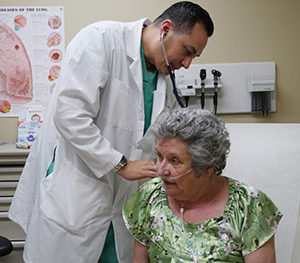For decades, primary care physicians have struggled to keep our doors open.
Government regulations and insurance obstacles have separated people from their healthcare, eroding the patient-physician relationship that is so critical to providing preventive care to America’s families. And with patients skipping necessary doctor visits due to the COVID-19 pandemic, thousands of small business doctor’s offices may go bankrupt before the end of summer.
Like so many other family doctors, I’ve fought a healthcare system that puts patients last.
When government regulation decimated small community hospitals, families didn’t benefit. Instead, insurance companies bought these hospitals at cheap prices and established regional monopolies. Further consolidation happens when doctors “burn out” from insurance and government mandates.
Insurance providers can also dictate and influence patient treatment. Kevin R. Campbell, assistant professor of medicine at the University of North Carolina, has described how insurance companies can overrule a doctor’s treatment plan if it is deemed too expensive.
Hidden rates between insurance companies and hospitals keep patients in the dark, and a skewed “pay per procedure” system incentivizes unnecessary tests and treatments with costs that are passed down to patients.
These systemic issues are why I stopped using the traditional insurance-based family practice approach and invested $100,000 into researching and creating a more sustainable alternative. The result was Epiphany Health, a direct primary care practice, and better patient results for less money.
Direct primary care makes it easier to tailor treatments to each individual patient because the model incentivizes doctors to help patients prevent illness, rather than engage in costly and lengthy chronic disease management.
Doctors also have more freedom for telemedicine, home visits and other means of reaching patients in tough circumstances, such as overburdened single parents and seniors at risk for COVID-19. This provides better care for less money and fewer logistical hoops.
Under this model, doctors are rewarded for successful treatments, not just tests and procedures. This encourages doctors to follow through with ill patients until they fully recover, and discourages prescribing unnecessary treatments.
Transparency, commitment to patients and emphasis on successful outcomes promotes innovation in the medical field and restores trust to our relationships with patients.
Direct primary care solves other problems inherent in our current patchwork system, such as minimizing third-party interference in the patient-physician relationship.
If a patient doesn’t like a doctor, he or she can switch — as opposed to government-backed incentives for doctors that even if focused on outcomes would incentivize priority to healthier patients — leaving the sick and uninsurable out on the proverbial streets.
Perhaps the best part about direct primary care practices is that we don’t discriminate against patients.
People with or without insurance are accepted, and at Epiphany Health we offer patients the option to pay less on the front end through transparent, wholesale cash pricing for routine labs, imaging and prescription medications. For all patients, we seek to reduce your out-of-pocket costs by keeping you healthy and out of our office.
The challenges facing doctors and their patients aren’t going away, and the shortage of primary care physicians will continue as many practices go bankrupt during this pandemic.
Creating a sustainable alternative for doctors and patients is more important than ever. The direct primary care model provides relief for countless uninsured and under-insured Americans as well as those with high-quality insurance.
And perhaps best of all, it creates patient-focused incentives for a medical system that long ago forgot that their Hippocratic Oath to “Do no harm.”

